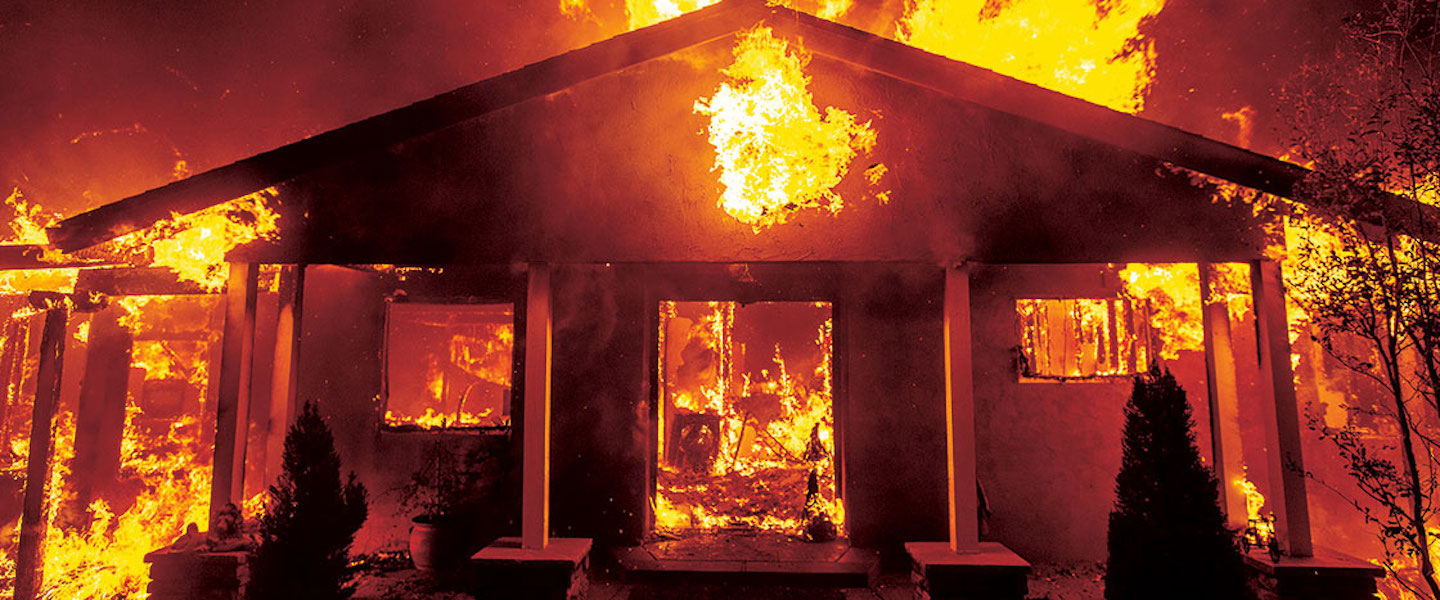“This can’t be happening.”
That’s what 9-year-old Eleanor Weddig was thinking as she sat in the car with her father. It was the morning of November 8, 2018, and Eleanor was caught in the middle of what would become the deadliest wildfire in the history of California. All across the town of Paradise, thousands of houses were in flames. Trees burned like giant torches. Ash fell from the sky. The morning sky was midnight dark.
“Am I dreaming?” Eleanor kept asking herself. She pinched her leg, hard, trying to wake herself up.
But Eleanor wasn’t asleep.
Tragically, the nightmarish scene in Paradise was all too real. Within hours, 85 people would be dead. Nearly 14,000 houses would be burned to the ground. Schools, playgrounds, offices, businesses,
the hospital—all would be destroyed.
And now Eleanor, her dad, Greg, and thousands of others were trying to escape before it was too late.
The town of Paradise was born about 170 years ago, just after the California Gold Rush of 1849. A lucky man had discovered gold in a mountain stream, about 100 miles south of Paradise. The news spread, and soon tens of thousands of people—nicknamed ’49ers—were rushing to California, their hearts filled with golden dreams.
Few struck it rich. But many fell in love with the California wilderness, the feeling of wide-open possibility in the American West. They built new towns, places like Paradise.
Over the decades, Paradise grew into a large and bustling town. Kids like Eleanor grew up hiking through the thick forests, fishing in the Feather River, and gobbling up pancakes at Debbie’s Restaurant, a local favorite.
On the morning of November 8, Eleanor got dressed for school and ate her cereal. Down the road, her classmate Lucas Fisher woke up as his mom, Holly, opened the curtains of his room. Across town, Paradise school-bus driver Kevin McKay steered a big yellow bus through the town’s narrow, tree-lined streets.
All seemed normal—except for the plume of smoke rising out of the forest in the distance.
Kevin spotted it around 6:45 a.m., as he drove his first morning bus route. So did Lucas’s mom, as she woke up Lucas for school.
Many people in town saw it. But few were very concerned. Fires are common in the forests around Paradise. Plus, this one seemed far away.



